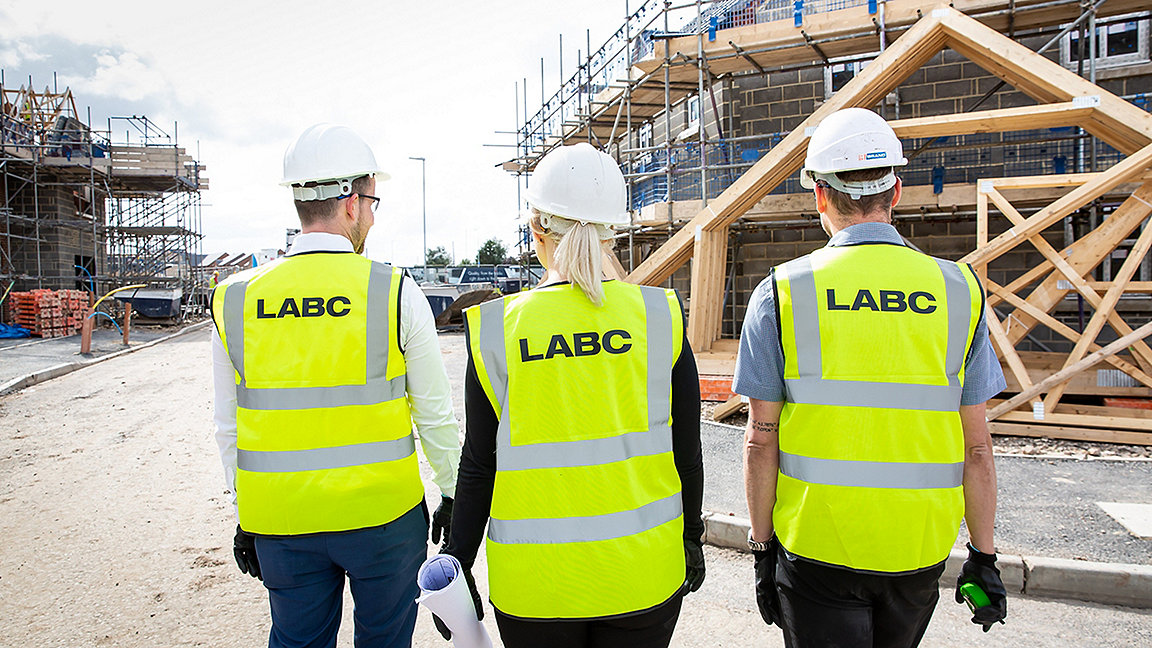
© LABC
Recent surveys of the profession by Local Authority Building Control (LABC) and the Local Government Association have identified a ticking demographic timebomb.
The age profile of public-sector building control surveyors is increasing and, until recently, experienced practitioners have been retiring at a faster rate than new entrants are joining the profession. The private sector is meanwhile likely to be affected by a similar age demographic.
Not only is the profession ageing, it also now faces fresh responsibilities to support the new Building Safety Regulator. Competence across construction is central to the Building Safety Act 2022 as well. The act should be a wake-up call for anyone in the industry who hasn't yet taken up the challenge of improving competency – or indeed proving it through formal assessment.
Practical insights support structured study
In response to these issues, LABC has spent 18 months developing a fully funded, three-year programme for new recruits, which it launched in August. Under the programme, LABC itself will employ and pay more than 100 trainees, who will each be based at a local authority in England.
The programme is designed to enable recruits to gain the skills, knowledge and experience to deal competently with the full range of building work and other statutory functions carried out by public-sector building control.
Trainees' specific development and learning will be supported while they study for the level 4 and then the level 5 diplomas in building control over three years. This is followed by level 6 – that is, degree-level – learning, for which further funding is available once they are permanently employed by a local authority.
Level 6 courses include the degree apprenticeship developed by Wolverhampton University, in collaboration with employers, LABC and professional bodies, as covered in a previous Built Environment Journal article. While such a course is a welcome part of the education and competence agenda, though, it is open only to those already working in building control – whereas the LABC programme is designed to attract new recruits into the profession.
The educational part of the programme is complemented by experiential learning on placements with a local authority building control team. Shadowing professionals in this way gives recruits a first-hand opportunity to see how the knowledge they gain is applied practically, to make sure buildings are safe and comply with the Building Regulations.
Once a trainee successfully completes each stage of learning and has gained sufficient experience, they can take the relevant validation assessment through the Building Safety Competence Foundation.
Programme pairs skills with salary
Throughout the programme, trainees receive a competitive salary, and on completion they have the skills and qualifications required to start their APC, with the potential to earn more once they become chartered.
Trainees help perform a range of building control surveying activities. These include providing information on complying with Building Regulations, inspecting building work, supporting technical investigations, and responding to notifications about dangerous structures and demolitions.
The programme is not only designed to respond to demand for professionals, but to appeal to students themselves. For instance, it offers the following benefits.
-
Because it is fully funded, students complete the programme with no debt to pay back.
-
The hybrid approach comprises a 35-hour work week, with two days of home-based learning and study and three of on-the-job training at an assigned local authority.
-
Recruits are paid a competitive salary throughout the programme.
-
LABC provides dedicated support, and trainees are assigned an experienced local authority mentor.
-
On completion, recruits have the training and experience to become a fully qualified chartered surveyor or engineer.
-
There are regular salary increases after successful completion of education and validation assessments.
In August, LABC advertised for technically minded candidates who enjoy problem-solving, are keen to learn and looking to build a career in the construction industry. The response was incredible, with more than 3,000 views and 140 expressions of interest in the first week of advertising.
Seven assessment centres were held throughout August, September and October in London, Birmingham and Manchester, and successful applicants are currently being placed with local authorities.
Related competencies include: Building control inspections, Fire safety, Legal/regulatory compliance

